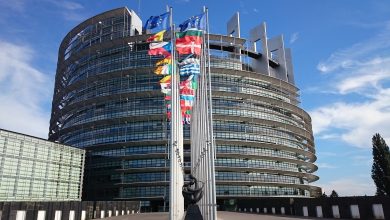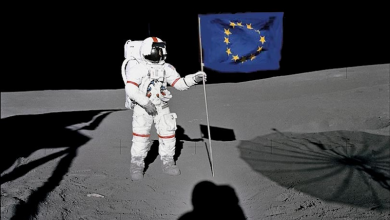In the Game of European Nominations, Everybody Loses

The recent nomination (and subsequent appointment) of Ursula von der Leyen to the post of European Commission President has sparked much debate in European political discussion, and outraged the European Parliament. To critics, the selection was an anti-democratic choice that killed the leading candidate system. Indeed, all leaders of parliamentary groups were systematically shot down by the Council, which eventually resorted to outsiders through the much-beleaguered process of a backroom deal. Further, critics allege that the selection does not reflect the momentous changes indicated by the recent European elections.
Others take a different view, arguing that the letter of the Treaties was respected. This is certainly true: having been tapped by the Council, the would-be president of the Commission needs to be confirmed in a secret ballot by an absolute majority in parliament. The leading candidate system, on the other hand, is not part of the Treaties: it was always a political deal that existed at the Council’s sufferance. And given that von der Leyen is a member of the largest party in Parliament, this is enough to liken the appointment to the process seen in many parliamentary democracies all over the world.
This debate is as old as the EU itself, and it’s unlikely to be resolved soon, regardless of the European Parliament having accepted von der Leyen’s appointment this time around. What is being overlooked in the public debate, however, is how we got here. The answer is that the nomination of Ursula von der Leyen is the product of a long chain of leadership failures. The Parliament, the Council as a whole, the individual Member States – every institution has seemingly outdone itself in botching the nomination process. The larger problem is not whether Ursula von der Leyen is a democratic choice for the presidency, but the staggering political immaturity by the Union’s policy elites. In the race for these nominations, there are no real winners: everybody lost.
A Tricky Nomination for the European Parliament
Few would doubt that the Parliament is the principal victim of this selection, given the flat reversal of the leading candidate system, which was introduced merely a legislature ago and led to the ascension of Jean-Claude Juncker. The consensus, however, stops there.
To some, the European Parliament is the victim of a dastardly power grab by a resurgent and indolent Council, seeking to bring the Union back under the control of the Member States. To others, the Parliament simply fulfilled its role as outlined under the Treaties, with the leading candidate system being an anomaly and a purely political experiment. What is left out of the equation is that the Parliament has largely itself to blame for the failure of this nomination system.
The Council’s opposition to the leading candidate system is not a new development, nor was it kept secret. The Council repeatedly expressed disappointment that European parties made a mockery of the process from the start, turning the nomination of a leading candidate into a festival of petty party politics. The choice by the EPP to nominate Manfred Weber, an uncharismatic German conservative with no prior governing experience, exacerbated the Council’s opinion that the leading candidate system had to go.

Regardless of whether one agrees or disagrees with the Council’s assessment, it cannot be denied that its hostility to the system was public knowledge long before the European elections, and in some cases even before the primaries. The right course of action for the European Parliament, then, would have been to act first: when the European elections delivered a picture of fragmentation, the EP should have quickly rally behind one of the leading candidates, granting them political legitimacy in dealing with the Council.
On the face of it, this would seem impossible. The Parliament hadn’t even held its opening session when the selection was made. That is not the full picture, however. Leading candidates had the mandate to represent their own parliamentary groups, and they could have reached a deal to secure that one of them commanded a majority. The candidates themselves knew this: Manfred Weber invited his fellow parliamentary lead candidates to dinner in the immediate aftermath of the nomination, hoping to secure support for his candidacy as the leader of the largest party (the EPP).
The other leading candidates turned him down, most likely because they had already expressed their intention to oppose an EPP presidency at all costs, a position strengthened by the greatly reduced clout of the EPP in the new parliament. Weber’s lack of charisma also didn’t help. However, that alone was no reason to sabotage the dinner. Attendance would have given the other leading candidates the opportunity to outmanoeuvre Weber, and garner support for themselves or someone else – indeed, considering that some parties fielded multiple candidates, one can hardly imagine a more favourable set up for them to try and sway the others.
The failure did not stop at the dinner. Between election night and the news of the appointment, the leading candidates did little and less to secure their nomination, with the possible exception of Frans Timmermans, whose run was curtailed by other people’s failures. The Parliament’s inability to agree on a name condemned it to reacting to the Council’s decisions. The chamber, therefore, largely sidelined itself, enabling the Council to go on and find its own solution.
The European People’s Party
If the whole European Parliament has itself to blame for the failure, the EPP in particular deserves a special mention for its staggering political myopia. As the largest party, as well as the incumbent of multiple mandates, the EPP’s failure to read the changing political landscape is astonishing. The selection of Manfred Weber as the party’s leading candidate was an early sign that the EPP was not entirely in sync with the political reality, and the Council’s open contempt for the way the EPP conducted the primaries should have been a strong hint.
The EPP remained oblivious to the writing on the wall. Even after the European elections delivered it a much diminished role in the European Parliament, the party still remained the individual largest, and thus naturally expected it could ram Manfred Weber down both the Council’s and the Parliament’s throat. Unsurprisingly, the Council rejected Weber and the EP never rallied behind him either. The EPP, however, doubled down, strenuously opposing Merkel’s plan to forge a compromise.
At least nominally, von der Leyen is an EPP candidate at the helm of the Commission. But, with the death of the leading candidate system, it’s unlikely that the EPP will have much reason to celebrate this appointment.
A Win for Germany?
On the surface, this looks like a win for Angela Merkel: after all, should von der Leyen be confirmed, she would be the first German to lead the Commission in fifty years. Moreover, she is a close political ally of Merkel’s, and owes her the entirety of her political career. Nevertheless, this save of face cannot hide the fact that Merkel’s intended plan failed miserably in the face of insurmountable internal opposition.
Merkel hatched a plan to save the leading candidate system, with Timmermans as the centerpiece of her efforts. She hammered the deal out with other European leaders during the G20 summit in Osaka, proposing the presidency of the European Parliament to Weber for two consecutive two and a half year mandates as a consolation prize. The plan was hatched together with German SPD politician Martin Schulz and Portugal’s Prime Minister Antonio Costa, and it had a major advantage: it would preserve the leading candidate system while at the same time refusing Weber the position.

In many ways, Timmermans was the ideal candidate: a social democrat coming from the Netherlands, a small Member State that is sceptical of further integration, and a much needed change from years of EPP leadership. He also had good odds of obtaining a parliamentary majority. Angela Merkel, however, committed one crucial mistake and didn’t (or failed to) bring the EPP itself behind the deal. The Council’s assumption that Merkel had taken care of internal party politics was soon shattered.
The EPP’s poisonous opposition to Merkel’s compromise deal is a clear demonstration of the growing rift between liberal conservatives and far right emulators within the EPP. It was also a humiliation for Merkel, and a display of her reduced legitimacy inside the party she has more or less directly ruled for over a decade.
The Outliers in the Game: V4 And Italy
The regional Visegrad group (V4) has clear ambitions of influencing European politics to a greater degree. This is completely understandable, since the grouping is entirely made up of new members trying to find their place among their wealthier western European partners. It also comes off as an entirely misplaced ambition, when the V4 manage to botch the nomination process to such a degree, and still pretend obliviousness to their own miscalculation – at least in public.
The Visegrad group had a clear red line in the nomination process: they didn’t want Timmermans. The S&D leading candidate was too outspoken about the deterioration of democratic standards in eastern Europe, and given Timmermans’ activism on the rule of law during his tenure as Commission Vice President, many within the V4 came to see him as their archenemy. In the same vein, they also opposed Renew Europe’s leading candidate Margrethe Vestager as too liberal an option for their liking – not to mention one too close to Macron.
The V4 even managed to enrol Italy to its anti-Timmermans crusade, in what seems like a rather bizarre move from Rome. As an S&D man known for his penchant for compromise, Timmermans would have been far likelier to express sympathy for Italy’s budget plights than conservative von der Leyen. It’s also not clear exactly what Italy expects to receive in return from its support of the V4: surely not relief on migration, considering this is the regional bloc more staunchly opposed to EU-wide redistribution of new arrivals.

The fact that Timmermans was denied the presidency undoubtedly makes for nice headlines, and the Polish government wasted no time in boasting that the next European Commission will be “less confrontational”. It’s also a political miscalculation of a bizarre degree. Ursula von der Leyen is a German, and Merkel’s pupil to the bone, owing her the entirety of her political career. She also owes a political debt to Macron, whose acceptance was crucial to greenlight her nomination.
Macron also managed to place his close ally, Belgian Prime Minister Charles Michel, in the presidency of the European Council. If this doesn’t look bad enough for the political prospects of V4 governments, just look at von der Leyen’s two proposed vice presidents: Vestager herself, a Danish liberal with little patience for governments (and corporations) who skirt the rules – and Timmermans, who, in addition to his well known stance on the rule of law, has now personal reasons to harbour a grudge against the Member States that denied him the presidency. In trying to drive away a potential enemy, the Visegrad group has attracted three. Hardly an impressive strategic record.
The Future of the Nomination Process
The nomination process might have followed the Treaties to the letter, and they might well have given the Council the control on the institutions that Member States crave, without damage to any Treaty-enshrined democratic provision. Subjectively, they may even have selected nominally qualified candidates for all positions, with a much-needed attention reserved to people with background in security and foreign policy. However one wants to spin it, though, it can’t be ignored that they also reopened the painful question of EU political legitimacy, at a time when it finally looked to be in the past.
Public opinion might not be a part of the intricacies and details of political dealings at all levels of European governance, and they might even not be interested in, or grasp the nuance that went into the final selection. But the tortured path to the nominations, and the abundance of mistakes and acrimony from all sides, was there for all to see, and this communications disaster alone would be enough to raise many question marks about the quality of Europe’s political leadership.
The European Union’s real problem is not in the Treaties or their implementation or even in the apparent and increased fragmentation of its electorate. The real problem is that its policy elites are not ready to rule the continent. After the Great Recession and the 2012 Eurozone crisis, one wonders what other near-apocalyptic scenario will be required to snap European politics out of its sclerotic complacency.





